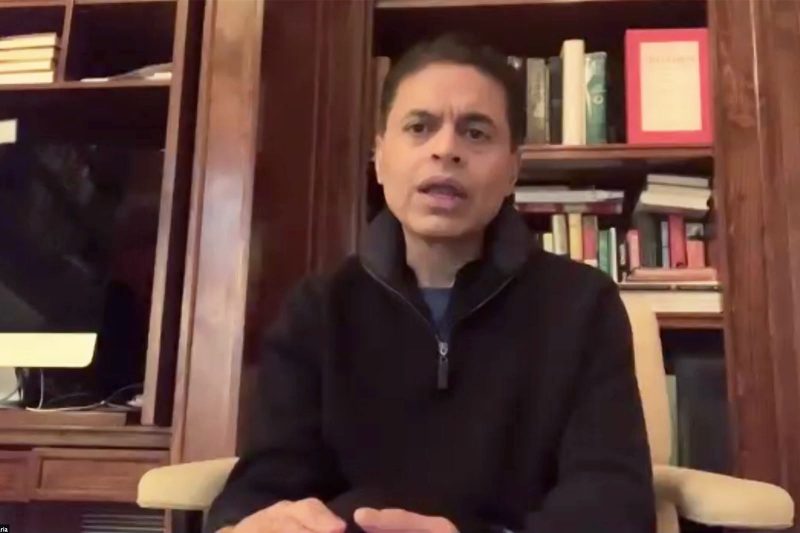More than 300 attendees joined the Dec. 2 webinar with journalist and author Fareed Zakaria about his book, “Ten Lessons for a Post-Pandemic World.”
Tamar Gendler, Dean of the Faculty of Arts and Sciences, Vincent J. Scully Professor of Philosophy and Professor of Psychology and Cognitive Sciences at Yale, moderated the conversation.
Zakaria hosts Fareed Zakaria GPS for CNN Worldwide and is a columnist for The Washington Post, a contributing editor for The Atlantic, and a bestselling author. Fareed Zakaria GPS is a weekly international and domestic affairs program that airs on CNN/U.S. and around the world on CNN International.
Gender opened the conversation by asking Zakaria to comment on the key insight of the book: “Everyone is connected but no one is in charge.”
“The central challenge is that we have accelerated the pace of change more dramatically than ever before in history to a point where it has become seriously dangerous and risky,” Zakaria said.
The result, Zakaria argues, is a dramatic increase in negative environmental responses, such as forest fires, droughts, famines, and virus transmission from animals to humans.
“The pandemic should be a wake up call,” he said.
“This may be the first event in our lifetimes, and it may be the only event in our lifetimes, that the entire planet is in some way experiencing simultaneously,” Zakaria said.
“What is different about this one is that it has an element that no other crisis had before which is the rise of digital life,” Zakaria said, citing the disproportionate effect on people working in certain sectors, including retail, tourism and hospitality industries.
Gendler and Zakaria also discussed the differences in how countries have fared during the crisis. Nations that were willing to learn from their mistakes and had effective governance did better, Zakaria argued, citing Taiwan as the “gold star” in terms of its handling of the pandemic.
Asked to comment about the polarization in the U.S., Zakaria argued that it’s not just about economics. “It’s about status and dignity,” he said.
“The feeling that people who are less fortunate economically, who are not doing as well in this social scale, in some sense deserve their fate, is a very pernicious one. We need a different cultural conversation and one that really is genuinely more pluralistic than we have,” he said.
